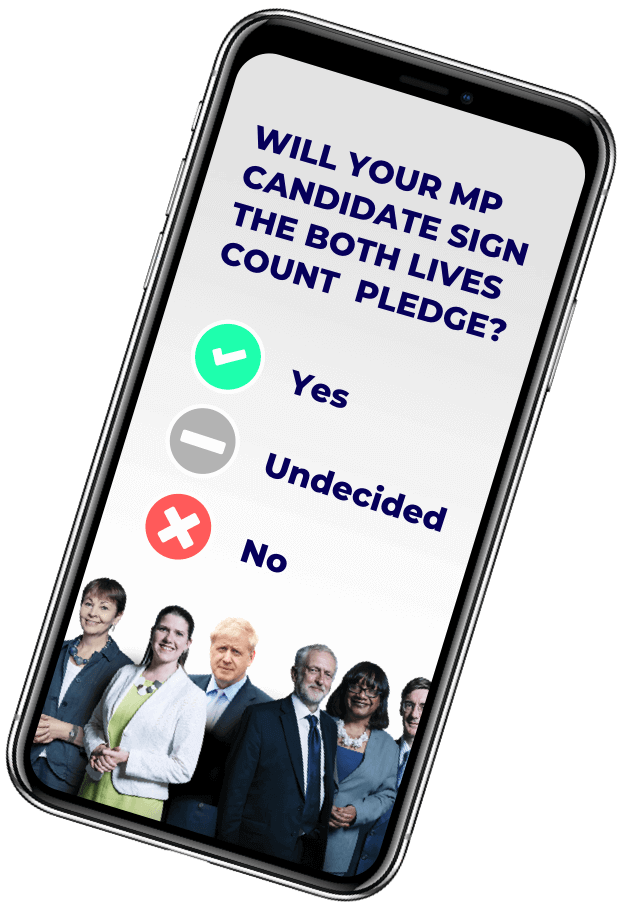
End discrimination against baby girls
Stop discrimination against baby girls by supporting a law change to clarify that sex-selective abortion is illegal.
Globally, well over 100 million women are estimated to be missing from populations because of sex-selective abortion (the practice of terminating a pregnancy based on the predicted sex of the baby). Women can come under intense pressure from families, husbands, boyfriends and other third parties, usually to terminate a pregnancy where a baby girl is expected.
In the United Kingdom a lack of clarity in current legislation has been exploited to allow abortions to be provided on the basis of the baby’s sex. The British Medical Association (BMA) have outlined cases where they believe sex-selective abortion is permissible on mental health grounds, and the British Pregnancy Advisory Service (BPAS), which performs more than 60,000 abortions per year, also make the claim in their literature that abortion for gender is not illegal.
A recent BBC investigation revealed that new Non-Invasive Pre-Natal Tests (NIPT) are being used widely to determine the gender of babies, with women disclosing that they were under intense pressure to undergo sex-selective abortions. There is also a body of first-hand testimony from UK resident women who say that they have come under intense pressure from family members to have sex-selective abortions and have gone on to obtained these abortions in the UK.
Notably, a report from the Nuffield Council on Bioethics, a government advisory body, found a number of websites offering baby gender tests for around £170. In that report, the Council warned that the increasingly widespread use of the tests in the UK could lead to the country becoming a haven for sex-selective abortions
An investigation by the Telegraph revealed that doctors were agreeing to provide sex-selective abortions ‘no questions asked.’
Independent polling undertaken by SavantaComRes shows that 89% of the general population and 91% of women agree that gender-selective abortion should be explicitly banned by the law.

Lower the abortion time limit
Bring UK law closer to the laws in the majority of EU member states by lowering the gestational time limit for abortion.
Our current abortion time limit is out of line with the rest of Europe where the most common abortion time limit among EU member states is 12 weeks.
Furthermore, there currently is a contradiction in British law. The survival rate for extremely premature babies has doubled over the past decade, prompting new guidance allowing doctors to try to save babies born as early as 22 weeks into a pregnancy. This means that in one room of a hospital, doctors could be working to save a baby born alive before 24 weeks whilst in another room a doctor could perform an abortion which would end the life of a baby at the same age.
Bringing UK law closer to the laws in the majority of EU member states by lowering the gestational time limit for abortion will bring us in line with modern science and is well supported by the public.
Independent polling from SavantaComRes shows that 70% of women in the UK want to see the time limit for abortion reduced to 20 weeks or below.

Stop pregnancy and maternity discrimination
Support women in the workplace by backing policies designed to end pregnancy and maternity discrimination.
The Equality Act 2010 was supposed to end discrimination in the workplace, but evidence has emerged that pregnant women and mothers still face high levels of discrimination.
Findings from interviews conducted with over 3,000 employers and over 3,000 mothers show that an alarming 77% of women report having “a negative or possibly discriminatory experience during pregnancy, maternity leave, and/or on return from maternity leave.” More specifically, “half of mothers. . . described a negative impact on their opportunity, status or job security,” and “20% reported financial loss as a result of their pregnancy.”
While a majority of employers believe “it was in their interests to support pregnant women,’’ and “that statutory rights relating to pregnancy…are reasonable and easy to implement,” the summary of key findings outlined several other concerning statistics, including:
- Approximately 1 in 9 mothers who stated “they felt forced to leave their job. This included those being dismissed (1%); made compulsorily redundant, where others in their workplace were not (1%); or feeling treated so poorly they felt they had to leave their job (9%).”
- 1 in 5 mothers who reported “harassment or negative comments related to pregnancy or flexible working from their employer and /or colleagues” and
- 1 in 10 mothers said they “were discouraged them from attending antenatal appointments.”
Notably, single and ethnic minority mothers were both “more likely to report financial loss” and “a negative impact on opportunity.”
Recently, progress has been made on this front with the Government revealing plans to extend the redundancy protection period by a further 6 months. The Government also announced that they would be establishing a taskforce to make recommendations on improvements on how to increase awareness amongst pregnant women and new mothers of their maternity rights.
Experiencing pregnancy and maternity discrimination could result in a scenario where women have to pick between being discriminated but financially secure, or leaving their job and struggling financially. No woman should have to make this choice.
Independent polling from SavantaComRes shows that 79% of the general population and 84% of women agree that women who want to continue with their pregnancies, but are under financial pressure to have an abortion, should be given more support. Ending pregnancy and maternity discimination would help provide many women across the country with the financial support they need to care for their children and themselves.
Are you an MP candidate? Click here or email info@righttolife.org.uk to sign the pledge.

THE MORE MP CANDIDATES RESPOND, THE BETTER INFORMED THE PUBLIC WILL BE
